The Chevrolet Bolt EV was a pioneer when it arrived five years ago. It was one of the first battery electric vehicles to offer over 200 miles of range on a single charge. Since then, the Bolt EV received consistent updates including a 21-mile range increase to 259 miles for the 2020 model year. Is it still a strong contender even with new competition in the market? We have a 2021 Bolt EV to refresh our memory before checking out the updated 2022 lineup, which now includes the larger Bolt EUV.
2021 Chevrolet Bolt EV exterior
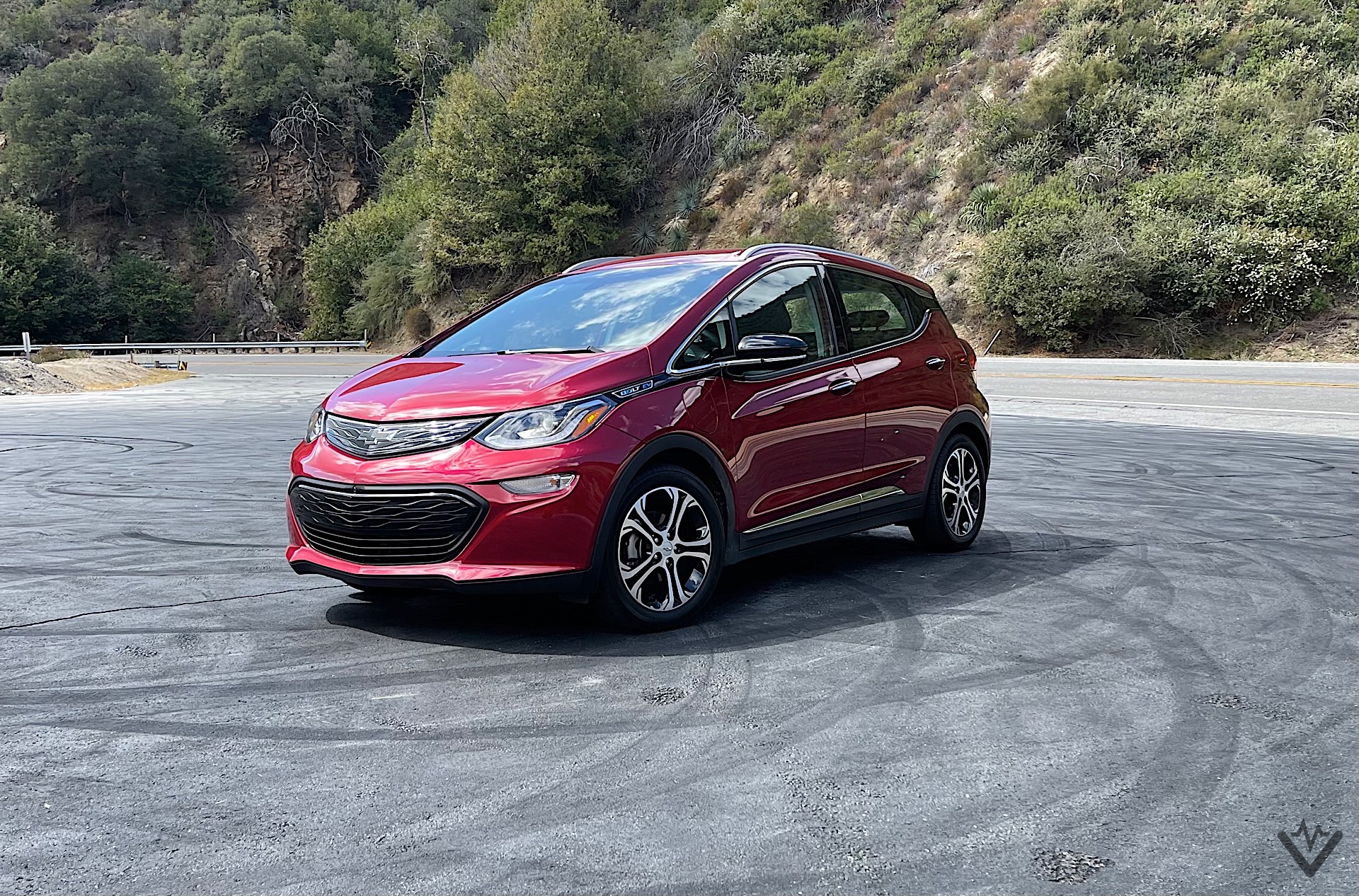
One look at the Chevrolet Bolt EV and you’ll immediately notice the high roofline. It’s a tall hatchback with a short nose, a nearly vertical rear end, and a sweptback A-pillar for optimum aerodynamics. The only things hinting at the Bolt being an EV are the lack of exhaust tips, spaceshiplike humming noises on the move, and the Bolt EV badges on the front fenders and liftgate.
2021 Chevrolet Bolt EV interior
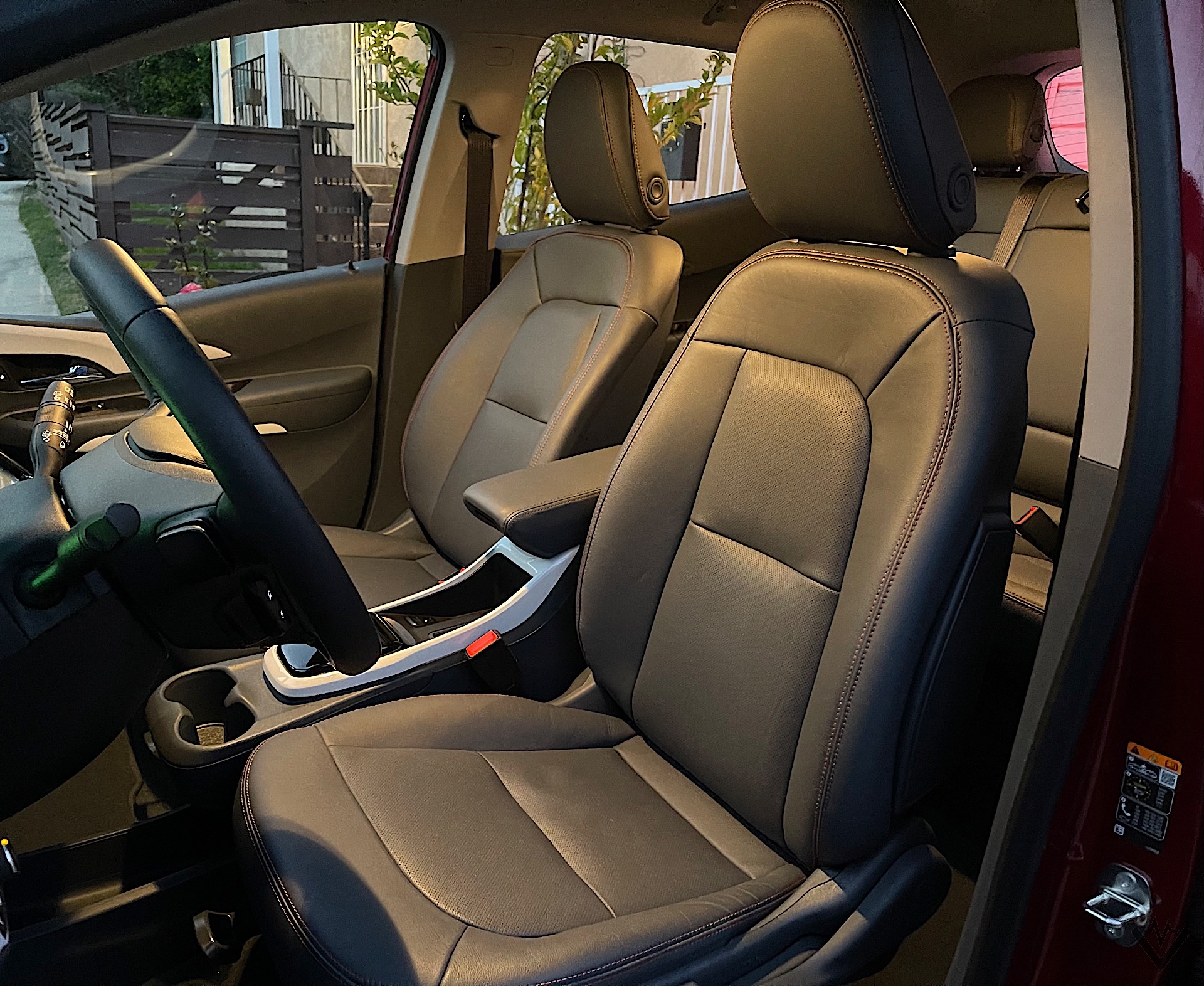
For a small hatchback, the Bolt EV is surprisingly roomy. Four people easily fit while five will be OK for shorter drives. The flat floor provides extra storage in front and more foot room all around. You get excellent visibility thanks to the expansive glass area. With the cargo cover and two-level floor removed, you get generous trunk space. Folding the 60/40 rear seat backs expands capacity but you lose out on the flat surface unless the cargo floor is in its highest position.
Chevrolet could improve a few things on the interior namely insulation and fit and finish. You get significant wind buffeting from the driver’s side B-pillar at highway speeds. There is road and tire noise on poorly maintained roads but they’re not as excessive. Most of the surfaces are hard plastic including the dash, door cards, and touchpoints.
Adults with larger frames may find the front seats too narrow. You feel like you’re sitting on rather than in the seat because you’re on top of the bolsters. Through turns, you’re sliding around a lot because they lack proper support. Chevrolet has reportedly updated the seats for the 2022 model year so we’re hoping they’re more accommodating to a wider range of body types.
2021 Chevrolet Bolt EV tech features
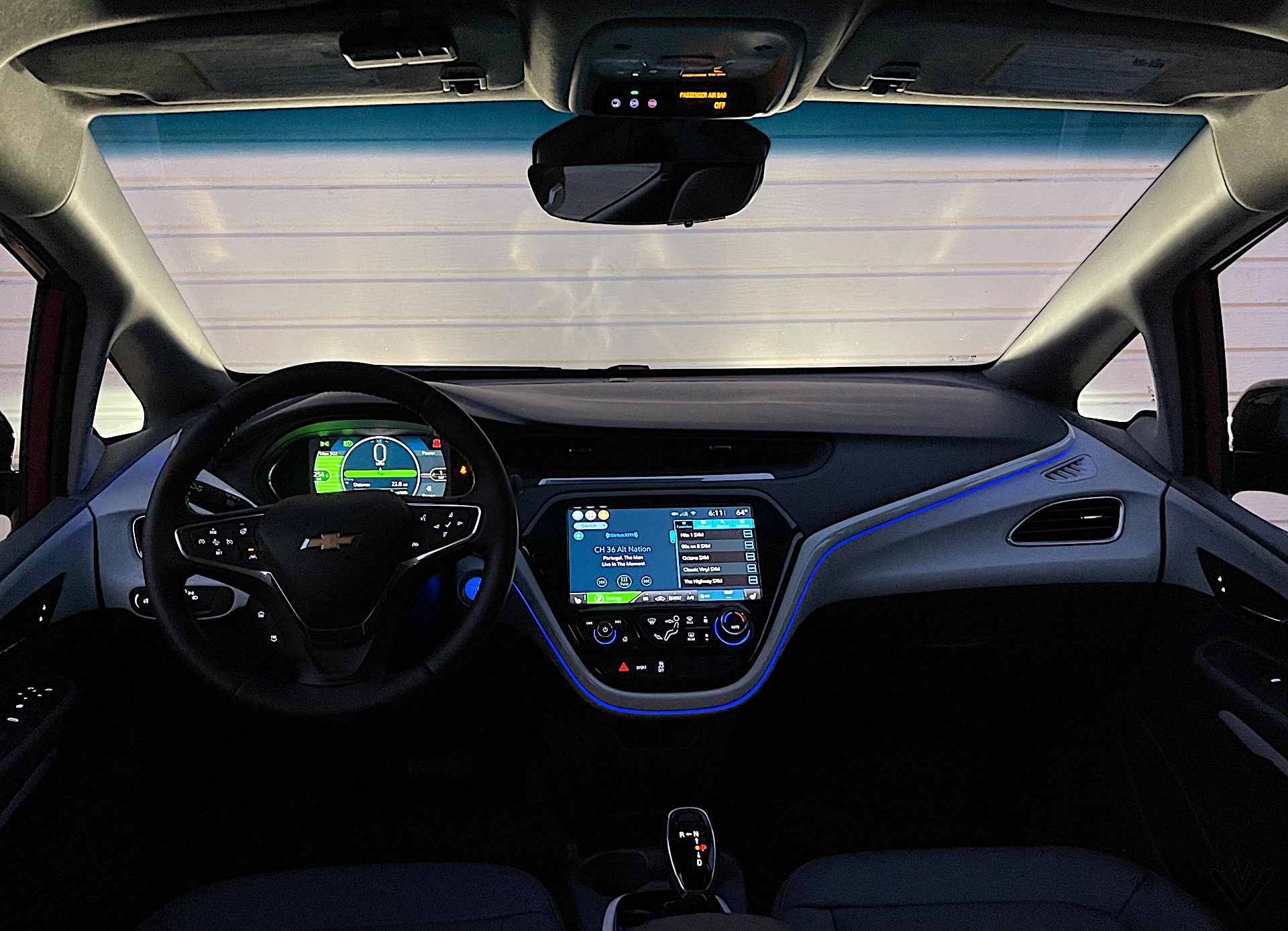
Although the 2021 Bolt EV has an older version of General Motors’ infotainment system, it’s still intuitive and user-friendly. This iteration features a responsive 10.2-inch touch screen complemented by physical buttons and knobs. Frequently used functions are a tap away and there’s always a way to switch back to the Home menu or other functions like Apple CarPlay and Android Auto. Our test car also came with a seven-speaker Bose audio system that’s muddled at lower volumes and could be more immersive.
The available driver assistance technologies are mostly unintrusive. However, they’re not as natural in operation as the systems found in competitors like the Hyundai Kona Electric and Nissan Leaf. Lane-keeping assist pingpongs you between the dividers while forward collision warning can get overly reactive, causing it to think that you’re going to hit a pedestrian or object even though you’re traveling in a different direction.
2021 Chevrolet Bolt EV driving impressions
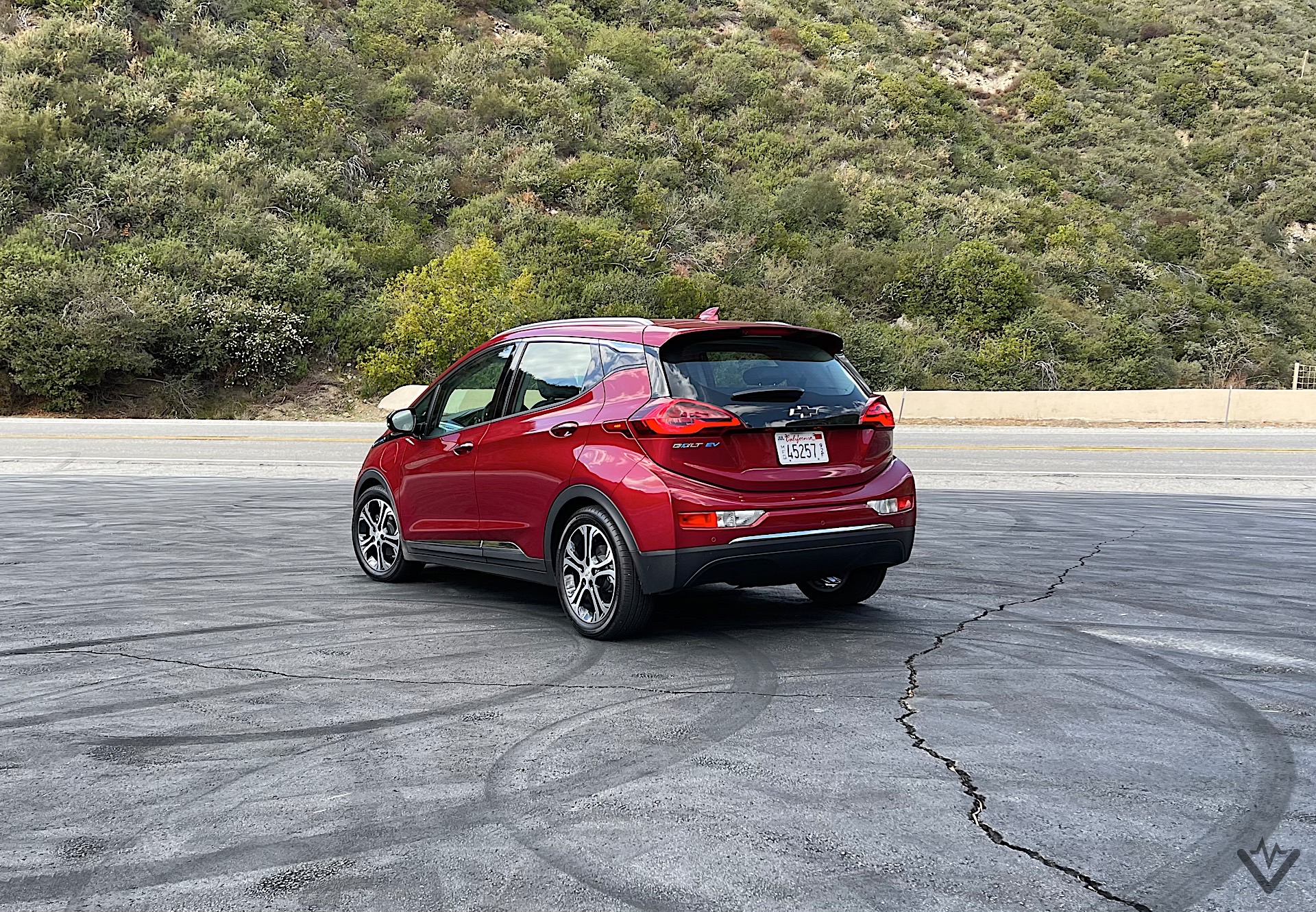
Despite its height, the Bolt EV isn’t top-heavy. Credit the low center of gravity, which is achieved by placing the 66-kWh lithium-ion battery under the passenger cabin. As a result, the car handles confidently and possesses commendable body control. The accurate steering complements the Bolt’s handling because it tells you exactly what the front wheels are doing. Just don’t push too hard because the eco-focused tires lack grip.
Ride comfort is compliant because the Bolt’s suspension keeps the passenger cabin well isolated. Impacts are dispatched promptly and passengers don’t feel much harshness over poorly maintained roads. Despite the torsion beam in the rear, the car doesn’t bounce around or tiptoe even when hitting a bump while turning.
With 200 hp and 266 lb-ft of torque going through the front wheels, the Bolt moves effortlessly. Put your foot down on the accelerator and you get instant power to quickly pass slower traffic or climb up steep inclines. From a stop, the Bolt glides off rather than sprinting off the line, hinting at torque being limited to minimize wheel spin.
Learning one-pedal driving in the Bolt is a cinch. Putting the car in L mode provides full regenerative braking, allowing you to come to a complete stop by easing off the accelerator. You can also use the left paddle to recuperate more energy and slow the vehicle down sooner. Transitions from regenerative to mechanical braking can feel jerky outside of L mode, especially during emergency stops.
Charging the Bolt EV takes roughly 10 hours using a level 2/240-volt charger. A level 3 DC fast charger will bring the battery back up to 80 percent in an hour at a maximum rate of 55 kW.
2021 Chevrolet Bolt EV pricing
The 2021 Chevrolet Bolt EV starts at $37,890 for the base LT grade. Our test car is the Bolt EV Premier, which costs $42,695. With the Infotainment and Driver Confidence II packages, the extra cost Cajun Red Tintcoat exterior color, and several dealer-installed accessories, the total price comes out to $44,630. The Bolt EV is eligible for state and local incentives.
Final verdict
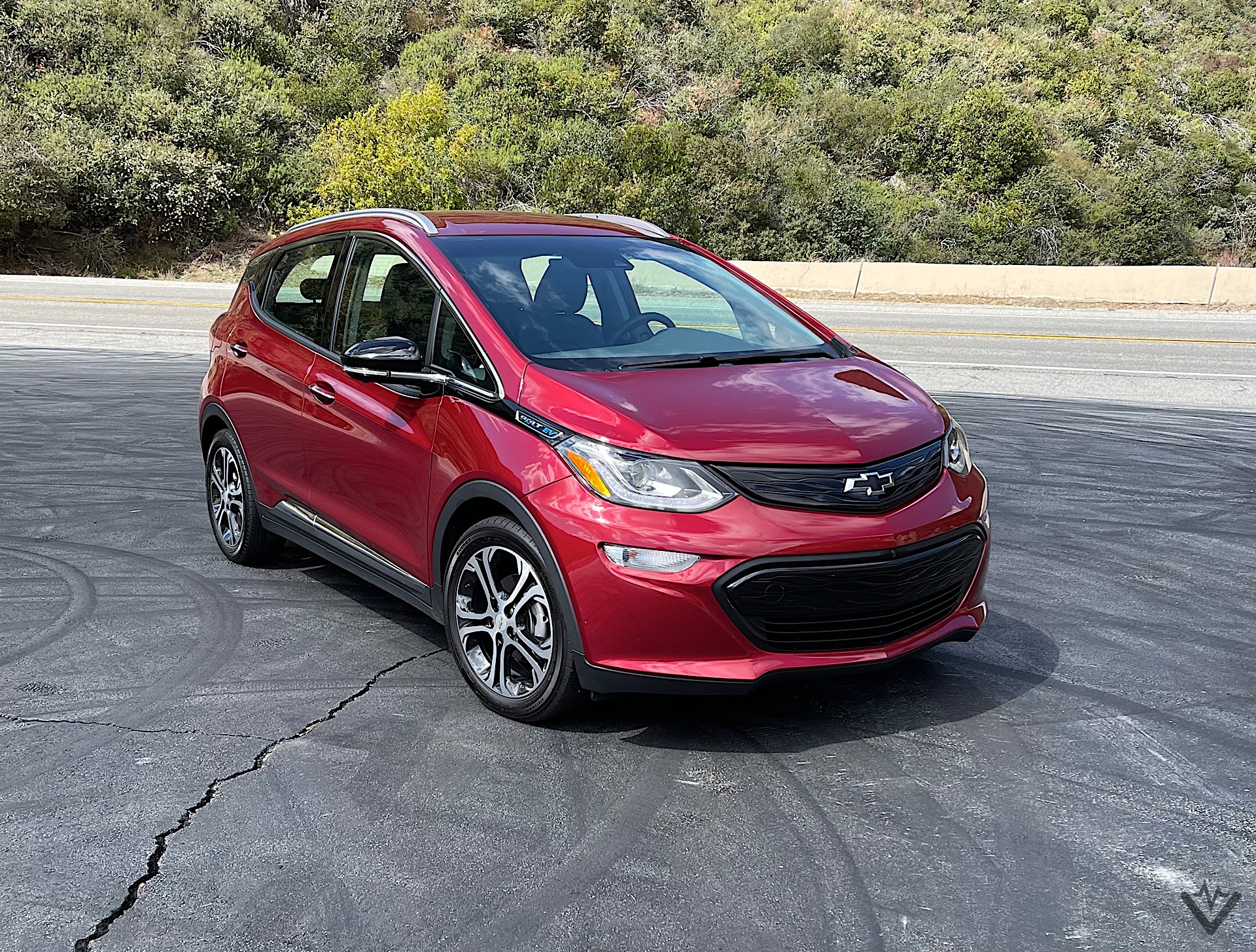
Among mainstream electric vehicles, the Chevrolet Bolt EV remains one of the most compelling options. Between the pleasant driving experience, spacious interior, user-friendly tech, and generous range, there’s a lot to like. All that’s left to do is make quality of life improvements to expand the car’s appeal. We’re excited to see how Chevrolet builds on an already compelling package with the refreshed 2022 Bolt EV and the slightly larger Bolt EUV.
At a glance
- Year: 2021
- Make: Chevrolet
- Model: Bolt EV
- Trim: Premier
- Type: 4-door compact hatchback
- Horsepower and torque: 200 hp / 266 lb-ft
- Total range: 259 miles
- MPGe: 118
- Pros: Roomy interior, good ride and handling balance
- Cons: Lots of hard interior plastics, wind noise at highway speeds
- Base: $37,890
- Price as tested: $44,630

